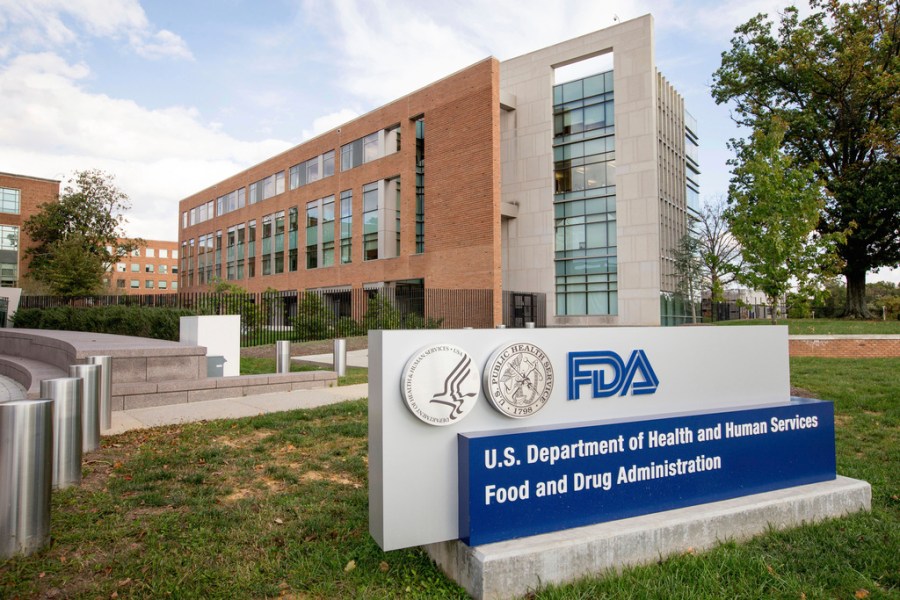Politics
US Pharmaceutical Industry Faces Risks from Reliance on China

The United States is increasingly vulnerable in its pharmaceutical supply chain due to a heavy reliance on China for essential ingredients. This dependency raises significant concerns regarding drug safety and quality control, prompting calls for a comprehensive strategy to address these risks effectively.
The majority of Active Pharmaceutical Ingredients (APIs) used in U.S. medications are sourced from China. According to the U.S. Food and Drug Administration (FDA), over 80% of the APIs for the American market come from overseas. This situation places the U.S. at a critical juncture, as disruptions in China’s manufacturing capabilities could lead to significant shortages of vital medications.
Implications for Drug Safety and Quality Control
Concerns about the quality of drugs manufactured in China have surfaced repeatedly. Reports indicate that the Chinese pharmaceutical industry has faced scrutiny over issues such as contamination and improper manufacturing practices. The FDA has conducted multiple inspections of Chinese facilities, uncovering serious deficiencies that raise questions about the safety of imported medications.
For instance, in 2023 alone, the FDA flagged numerous facilities for failing to meet its stringent quality standards. These incidents highlight a growing need for enhanced regulatory oversight and transparency within the supply chain. The risk of compromised drug quality can have dire consequences for patients who rely on these medications for their health and well-being.
The reliance on foreign sources for critical supplies is not just a pharmaceutical issue; it extends into broader public health concerns. In the event of geopolitical tensions or natural disasters, the U.S. could face significant disruptions in its medication supply, which could lead to health crises.
Strategies to Mitigate Risks
To address these vulnerabilities, experts advocate for a multi-faceted strategy that involves diversifying the supply chain. This includes increasing domestic production of APIs and investing in alternative sourcing options from countries with robust regulatory frameworks.
Additionally, enhancing collaboration between the FDA and international regulatory bodies can improve oversight and ensure that manufacturing practices meet global safety standards. By fostering partnerships with countries that have a proven track record in pharmaceutical manufacturing, the U.S. can better secure its supply chain against potential disruptions.
Furthermore, companies within the pharmaceutical sector are encouraged to adopt risk assessments and contingency planning to prepare for unforeseen events that could impact the availability of essential drugs. By proactively addressing these concerns, the industry can enhance its resilience and safeguard public health.
In conclusion, the heavy reliance on China for pharmaceutical ingredients poses significant risks to drug safety and quality control in the United States. A strategic approach that includes diversifying supply sources, strengthening regulatory oversight, and enhancing collaboration with international partners is essential for mitigating these risks. As the pharmaceutical landscape continues to evolve, addressing these vulnerabilities will be critical for ensuring the health and safety of millions of Americans who depend on these vital medications.
-

 Lifestyle4 months ago
Lifestyle4 months agoLibraries Challenge Rising E-Book Costs Amid Growing Demand
-

 Sports3 months ago
Sports3 months agoTyreek Hill Responds to Tua Tagovailoa’s Comments on Team Dynamics
-

 Sports3 months ago
Sports3 months agoLiverpool Secures Agreement to Sign Young Striker Will Wright
-

 Lifestyle3 months ago
Lifestyle3 months agoSave Your Split Tomatoes: Expert Tips for Gardeners
-

 Lifestyle3 months ago
Lifestyle3 months agoPrincess Beatrice’s Daughter Athena Joins Siblings at London Parade
-

 World3 months ago
World3 months agoWinter Storms Lash New South Wales with Snow, Flood Risks
-

 Science4 months ago
Science4 months agoTrump Administration Moves to Repeal Key Climate Regulation
-

 Science3 months ago
Science3 months agoSan Francisco Hosts Unique Contest to Identify “Performative Males”
-

 Business4 months ago
Business4 months agoSoFi Technologies Shares Slip 2% Following Insider Stock Sale
-

 Science4 months ago
Science4 months agoNew Tool Reveals Link Between Horse Coat Condition and Parasites
-

 Sports3 months ago
Sports3 months agoElon Musk Sculpture Travels From Utah to Yosemite National Park
-

 Science4 months ago
Science4 months agoNew Study Confirms Humans Transported Stonehenge Bluestones








